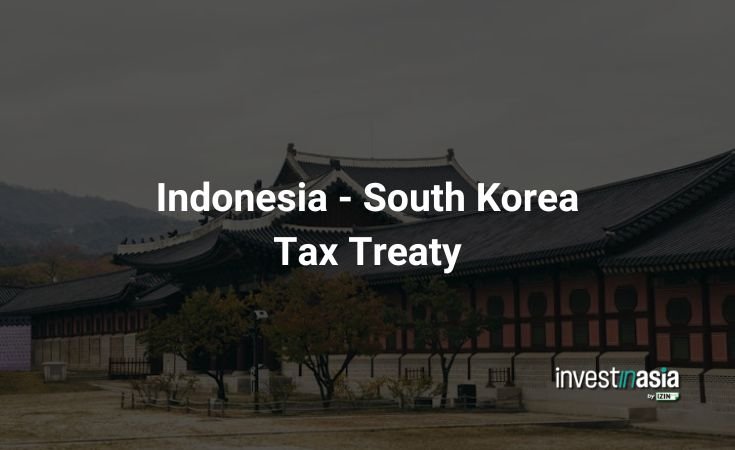Navigating the complexities of international taxation can be challenging, especially when dealing with cross-border activities. To alleviate some of these difficulties and promote economic cooperation, countries often enter into tax treaties. The tax treaty between Indonesia and Korea is a prime example, designed to prevent double taxation and fiscal evasion concerning taxes on income.
This comprehensive guide will delve into the crucial aspects of this treaty, explaining its significance and providing clarity on its provisions.
Also read: Tax Treaty Indonesia: Countries List and Complete Guide
What is the Indonesia-Korea Tax Treaty?
The Indonesia-Korea Tax Treaty is an agreement between the governments of Indonesia and Korea aimed at eliminating double taxation on income earned by residents of either country. The treaty also seeks to prevent tax evasion and promote economic cooperation and investment between the two nations. By establishing clear tax rules, the treaty helps businesses and individuals understand their tax obligations and avoid being taxed twice on the same income.
Personal Scope and Taxes Covered


The treaty applies to residents of either Indonesia or South Korea, including individuals and entities. It covers all income taxes imposed by both countries, such as Indonesia’s Income Tax (Pajak Penghasilan) and South Korea’s Income Tax and Corporation Tax. This ensures that taxes on income, interest, dividends, and royalties are comprehensively addressed.
Also read: Indonesia’s PPN Guide: Rules, VAT Rates, Calculation
Key Definitions
To avoid misunderstandings, the treaty provides clear definitions:
- Permanent Establishment (PE): Includes management places, branches, offices, factories, workshops, mines, and oil or gas wells.
- Resident: Refers to any person subject to tax based on residence in one of the contracting states, determined by factors like permanent home and center of vital interests.
Permanent Establishment (PE)
A PE is defined as a fixed place of business through which an enterprise conducts its activities. This includes construction projects exceeding six months and service provision exceeding three months within any twelve-month period.
Income from Immovable Property
Income from immovable property, including agriculture and forestry, can be taxed in the state where the property is located. This encompasses property accessories, livestock, and agricultural and forestry equipment.
Business Profits and Shipping & Air Transport
- Business Profits: Taxable only in the resident state unless conducted through a PE in the other state.
- Shipping and Air Transport: Profits from operating ships or aircraft in international traffic are taxable only in the enterprise’s resident state.
Also read: Indonesia Corporate Tax Rate: Navigating the Business Landscape
Associated Enterprises
If enterprises in both states are under common control, profits may be adjusted to reflect arm’s length transactions, ensuring fair taxation.
Dividends, Interest, and Royalties
- Dividends: Taxed in both states with limits on tax rates—10% for beneficial owners holding 25% of the company and 15% otherwise.
- Interest: Capped at 10% tax rate for beneficial owners, with exemptions for government or certain financial institutions.
- Royalties: Capped at 15% tax rate for beneficial owners, covering payments for use of intellectual properties.
Additional Provisions


- Directors’ Fees: Taxed in the country where the company is a resident.
- Artistes and Athletes: Income from personal activities can be taxed in the host country, with exemptions for cultural exchange programs.
- Pensions: Taxed in the country of residence and the country where the payment is made.
- Government Service: Remuneration and pensions paid by the government are generally taxable in the paying country.
- Teachers and Students: Teachers temporarily visiting for less than two years and students receiving payments from abroad are taxed only in their country of residence.
Also read: What is SPT (Tax Return) in Indonesia?
Relief from Double Taxation and Non-Discrimination
Mechanisms are provided to avoid double taxation, with each country offering tax credits for taxes paid in the other country. Additionally, nationals and enterprises of one country should not face more burdensome taxation in the other country.
Mutual Agreement Procedure and Exchange of Information
Residents can present cases of inconsistent taxation to their competent authority. Tax authorities will exchange information to enforce treaty provisions and prevent tax fraud, ensuring confidentiality.
Diplomatic Agents, Entry into Force, and Termination
Diplomatic agents and consular officers enjoy fiscal privileges under international law. The treaty comes into force upon ratification and remains in effect indefinitely, with specific termination procedures.
Also read: PMA (Foreign Company) Taxation in Indonesia: Complete Guide
The Indonesia-South Korea tax treaty fosters economic cooperation by providing clear tax guidelines, preventing double taxation, and encouraging cross-border trade and investment. Understanding these provisions helps individuals and businesses navigate their tax obligations effectively and leverage the benefits of this bilateral agreement.
For specific Indonesian tax advice and detailed analysis, you can rely on InvestinAsia’s Indonesia tax consultant and compliance services. Our experienced team of professionals is ready to assist you in every tax matter, such as:
- Accounting and tax reporting services in Indonesia
- Indonesia Payroll Service
- Indonesia LKPM Reporting Service
- Indonesia VAT Taxpayers Registration
Contact us for a FREE tax consultation and get special offers!



